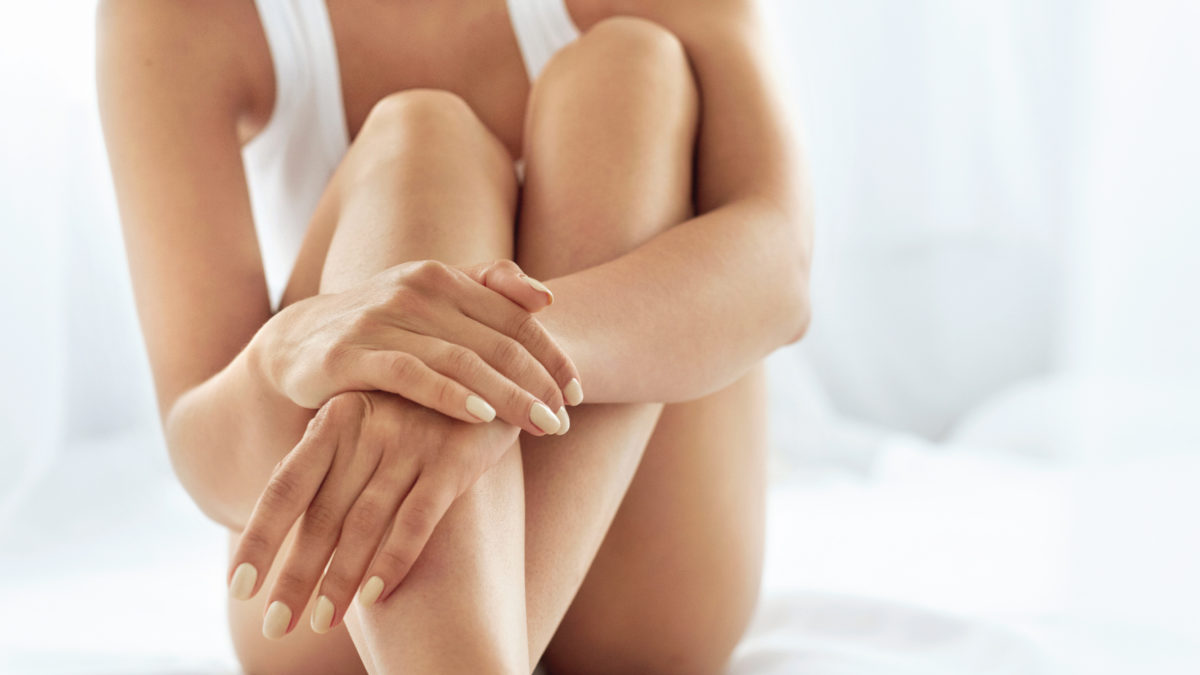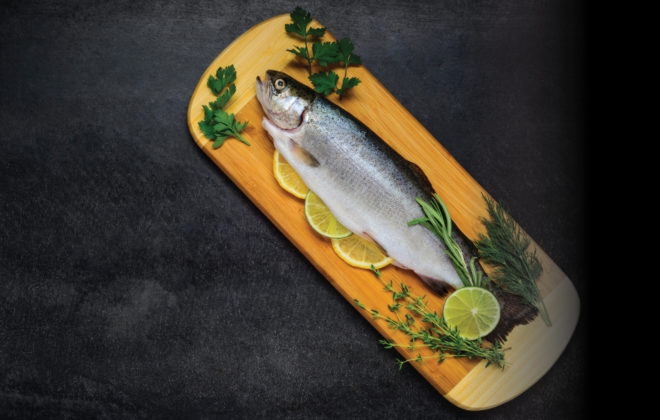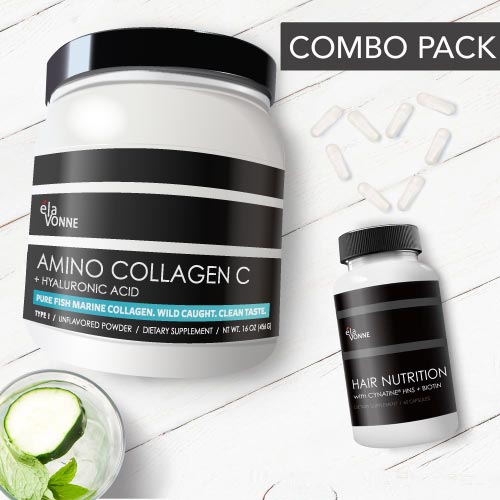The Beauty of Protein: Hair, Nails, Skin, and More
Everyone knows that protein is great for muscle, but did you know that protein also plays a major role in supporting skin, nail, and hair health?
Certain types of protein may be more desirable than others when it comes to beauty. Getting enough protein, though, is often a challenge.
Specific proteins supply the structural foundations for the growth, regeneration, and integrity of hair, nails, and skin. If you want a healthy appearance in these areas, here’s a guide to how much protein and which types of protein will get you the best results.
Protein and Beauty 101
Protein is good for your skin. The most overlooked area in the beauty industry is how aging is equally, if not more so, affected from the inside out.
Why is that?
Well, it is easier to sell someone a wrinkle cream than a lifestyle. While there are many fine creams available that will help protect and enhance the skin, this large body organ is most effectively supported through diet… and that’s where protein comes in.
Signs of Protein Deficient Diet
- Brittle nails, or slow-growing nails
- Thin or dry-looking skin
- Thinning hair, or dull luster to your hair’s appearance
- Cravings for sweets or carbohydrates
- Poor muscle tone (and cellulite)
- Extended tiredness
How Much Protein Do I Need Daily?
The Recommended Daily Allowance (RDI) for protein is 50 grams per day (based on a 2,000 calorie diet). This is a good place to start, but activity level and body weight can really change those amounts. For example:
- A 150 lb woman trying to lose weight could eat or 75 grams per day (0.5 grams per lb of body weight)
- A 225 lb male bodybuilder could eat 180 grams per day (0.8 grams per lb)
So, you see how the range of protein intake can vary person to person. Depending on your goal, the amount of protein you should to eat daily will be somewhere in those ranges—but the bottom line is, most people, and especially women are not eating enough protein, or the right kind of protein.
Different Types of Protein, Different Benefits
A common misconception is that all protein is the same and therefore does the job. This is wrong. For example, wheat protein, known as “gluten” is a very low quality protein and with a sometimes negative health impact, albeit a protein. Though all proteins have some benefit, there are some proteins that are associated with specific applications. For example:
- Muscle: Whey protein
- Lowering cholesterol: Soy protein
- Skin Care: Collagen protein
Maintaining a balanced diet with multiple sources of protein is important for health, and thus beauty, but since our focus is on skin care, we’ll discuss the best ways to get collagen into your diet, and which sources of collagen to look for.
Related: Top 2 Best Anti Aging Foods
Types of Collagen Protein
Collagen types are a biological classification, depending on the use of collagen, certain types of collagen are more appropriate for skin and beauty than others.
- Type 1 collagen is found in bones and skin. It accounts for more than 90% of organic mass of bone and is also the major component of skin, tendons and ligaments.
- Type 2 collagen is the main collagen of cartilage.
- Type 3 collagen is a fibrous protein in bone, cartilage, dentin, tendon, and other connective tissue.
I recall my grandmother gnawing away on the cartilage and ligaments of a chicken leg. It was gross. She assured me it was good for her and she was right, in a way. What she knew (without really knowing it) was that she was getting some very valuable collagen from the chicken for her joints and ligaments. Now, manufacturers take this very type of collagen, Type II, and put it into supplements and pharmaceuticals for joint support.
For skin and beauty, type I collagen is regarded to be the best type of collagen. There are many type I collagen supplements manufactured from many different sources (bovine, fish, porcine) for this reason.
Forms of Collagen Protein
Of course, you could chew up some fish skin, bones, or collagen gelatin, but that would be an unpleasant and less effective way to get collagen in your body.
The best form of collagen to take in a powder are collagen peptides (hydrolyzed collagen proteins), which are smaller molecules that allow for faster and greater absorption in the body. These peptides have the greatest biological value as they are, in essence pre-digested. Marine collagen peptides are the smallest of all types of collagen
Biological Value: Whole Protein vs. Protein Supplements
Getting enough protein in the diet often poses a challenge for most. The biological value is the amount of protein that gets used in the body. For example, an egg, depending on how its prepared, carries a biological value of 100 (none of the protein gets lost in the body). Beans have a biological value of only around 50. Leather is a protein too, but you wouldn’t eat it because it has an even lower biological value for obvious reasons.
Because of the discrepancy in protein quality, Protein powders offer a greater biological value for applications such as muscle building and skin care over whole food proteins because they are already broken down into smaller amino acid chains. This makes the biological values of these protein powders at their maximum for the type of protein they deliver (bovine, porcine, whey, fish).
The best form of collagen for skin, hair, and nails is hydrolyzed marine collagen from fish because of the small molecule size of the peptides. This means that it’s more available to the body when eaten.
Biological Value of Collagen Protein Creams
Many people use collagen as a skin topical, thinking it will increase the strength of their skin. Expensive skin care brands will tell you their cream contains collagen or collagen peptides that will penetrate and strengthen your skin. It won’t. You can’t put collagen on your skin and hope it absorbs through.
Putting collagen on your skin with a collagen cream is like putting cement on a brick wall, it will just sit there on top of it. Collagen molecules are simply too big and cannot penetrate into the skin matrix. While the collagen cream may help your skin hold moisture, they do not offer any biological value to the body as skin topicals.
Related: The Truth About Collagen Creams
Protein Powder Benefits for Skin
A recent study on the ingestible ingredients in Amino Collagen C shows amazing results for skin and beauty.
Collagen Supplement Study Details:
- 106 healthy female subjects
- 12 week period
- Double-blind randomized study
Researchers found collagen fragmentation was reduced by 31 percent for individuals eating fish collagen peptide. Collagen fragmentation is directly linked to skin sagging and wrinkling—signs of aging in the skin.
In addition, collagen density increased by 9 percent for people eating fish collagen peptide. Participants noted no side effects, and researchers noted the treatment had high acceptability by the participants.
Related: Collagen Supplement Clinical Study Results
When individuals have enough collagen their skin tends to be more plump, hydrated and to have less fine lines and wrinkles.
Review
I decided to try this collagen protein after seeing an episode of Oprah. I chose this collagen over others because it seemed like the most simple, straight forward formula—no fillers, flavors, etc. Also, I liked that it contains hyaluronic acid. I’m on my 4th canister now. I really am amazed by the changes in my skin. I’m in my early 40s and I can honestly say that the skin on my face is way more smooth, less fine lines, even the tone is more even. My hands, which I wasn’t expecting to notice a difference, are more smooth. I tell everyone about this supplement because the results really blew me away! I mix the powder in a little orange juice every morning, so easy and I don’t taste it. I don’t know how or why this works, but IT DOES! GREAT product. Thank you!
Cites and References
Timing and distribution of protein ingestion during prolonged recovery from resistance exercise alters myofibrillar protein synthesis. Areta JL, Burke LM, Ross ML, Camera DM, West DW, Broad EM, Jeacocke NA, Moore DR, Stellingwerff T, Phillips SM, Hawley J, Coffey VG. J Physiol. 2013 Mar 4.
Muscle Performance, Size, And Safety Responses After Eight Weeks Of Resistance Training And Protein Supplementation: A Randomized, Double-Blinded, Placebo-Controlled Clinical Trial. Walter AA, Herda TJ, Costa PB, Ryan ED, Stout JR, Cramer JT.
Post-exercise whey protein hydrolysate supplementation induces a greater increase inmuscle protein synthesis than its constituent amino acid content. Kanda A, Nakayama K, Fukasawa T, Koga J, Kanegae M, Kawanaka K, Higuchi M. Br J Nutr. 2013 Feb 7:1-7.
Effects of soy on metabolic biomarkers of cardiovascular disease in elderly women with metabolic syndrome. Bakhtiary A, Yassin Z, Hanachi P, Rahmat A, Ahmad Z, Jalali F. Arch Iran Med. 2012 Aug;15(8):462-8. doi: 012158/AIM.004.
Impact of food matrix on isoflavone metabolism and cardiovascular biomarkers in adults with hypercholesterolemia. Ahn-Jarvis J, Clinton SK, Riedl KM, Vodovotz Y, Schwartz SJ. Food Funct. 2012 Oct;3(10):1051-8.
[Effects of marine collagen peptide on delaying the skin aging]. Pei XR, Yang RY, Zhang ZF, Xu YJ, Han XL, Wang JB, Li Y. Zhonghua Yu Fang Yi Xue Za Zhi. 2008 Apr;42(4):235-8. Chinese.
A new view concerning the effects of collagen hydrolysate intake on skin properties. ARCHIVES OF DERMATOLOGICAL RESEARCH Volume 300, Number 9, 479-483, DOI: 10.1007/s00403-008-0888-4





